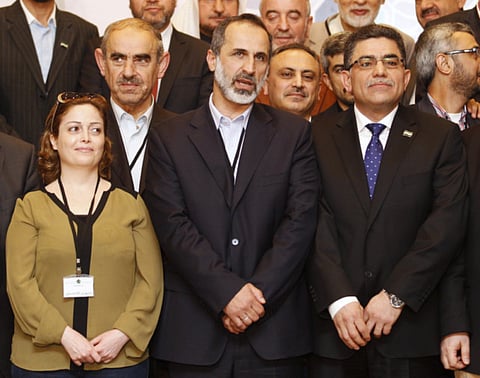Why Syrian opposition is split
Divisions deeply rooted in nation’s legacy

Beirut: For nearly two years, Syrian opposition leaders struggled to speak with a single voice, though they held endless meetings in world capitals, appointed representatives to plead their country’s case with the powerful, and finally settled on a provisional prime minister, Gassan Hitto, to lead a government in exile. Why can’t these educated men and women agree to coordinate their quest?
In his 1946 opus, An Arab Tells His Story: A Study of Loyalties, Edward Attiyah identified the problem best when he wrote: “if ever there was a country in which every conceivable influence, divine and mundane, physical and moral, inherent and extraneous, militated against national unity and the formation of patriotic sentiment, that country was Syria before 1914.”
The fact that divisions were deeply rooted in the nation’s legacy was undeniable even if nationalist sentiments united most against French colonialism. Remarkably, it was the Baath Party that managed to quell decades of political instability, which produced organised authoritarianism. Still, while Damascus muzzled opposition voices, what distinguished the post-1970 period was sectarian favouritism that granted minority populations, but especially ‘Alawites, excessive privileges.
Embedded in Arab nationalist rhetoric that prioritised regional goals ahead of domestic needs, Syrians eschewed democratisation, neglected the nation and, consequently, embedded mistrust in everyone’s souls.
It was no surprise therefore, that the Syrian National Coalition’s “consensus candidate” led to yet another fissure, which led 14 of the group’s 63 members to walk out. Several complained that Hitto, who carried the burden of US citizenship in a nation that harboured deep mistrusts of Westerners, was also too close to the Muslim Brotherhood. A devout Muslim, Hitto was not a member of the Brotherhood, though that was not the point of secularists who, presumably, wished to avoid a fate similar to Egypt’s. Rather, they simply underlined intrinsic suspicions, which strangulated even die-hard nationalists.



